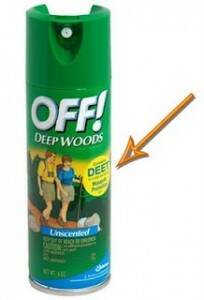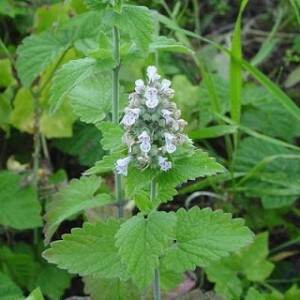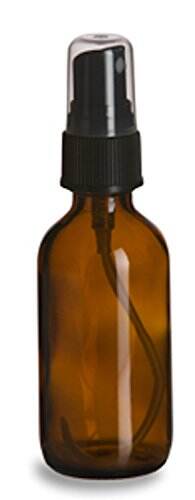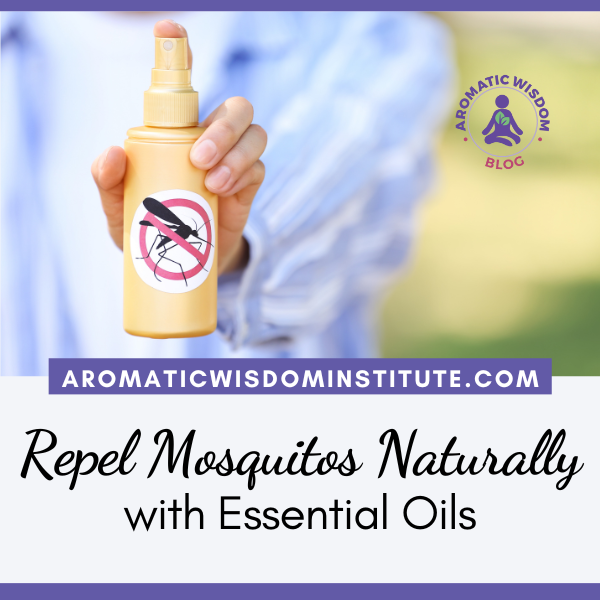Mosquitos are the deadliest critters on Earth.
They carry yellow fever, malaria, sleeping sickness, and at least 100 different viruses, including West Nile.
Boy skeeters are harmless vegetarians and feed solely on plant nectar. They don’t bite.
Girl skeeters, on the other hand, are Mother Nature’s mini vampires. They need blood meals to provide the vital protein that enables them to produce eggs.
No blood = no reproduction.
Common (and Dangerous) Mosquitos Repellants You’ve Been Using since Fifth Grade Camp
Although the chemical DEET (N, N diethyl-m-toluamide) has been proven an effective repellant, it’s hazardous for human use.
DEET is considered responsible for a plethora of ugly side effects including rashes, muscle twitching, confusion, slurred speech, seizures, and death. Most poison reactions to DEET probably go undetected even though nearly 5,000 DEET-related cases are reported each year to the National Centers for Poison Control.
Common US Brands for Repelling Mosquitos
- Backwoods Cutter
- Cutter Pleasant Protection
- Deep Woods OFF!
- Deep Woods OFF! For Sportsmen
- Muskol
- OFF!
- OFF! For Maximum Protection
- OFF! Skintastic
- OFF! Skintastic For Children
- OFF! Skintastic For Kids
- Ultra Muskol
- DEET
- m-Det
How Do Mosquito Repellants Work?
Without getting too scientific, here’s a brief and simplified explanation of how DEET keeps mosquitos away.
1. Mosquitos possess receptors located on the antennae which allow them to zero in a blood source. They find this blood source by detecting CO2.
2. All mammals give off CO2, including humans. Our skin excretes the gas, as does our breath.
3. A mosquito can detect this scent from 100 feet (30 meters) away. Quite simply, they smell you and identify you as a source of blood.
4. Commercial “repellants” don’t repel as much as confuse the mosquito. They give humans a new signature which lets the sensors believe you are not a food source.
Natural Alternatives to Toxic Mosquito Repellants
Some plant oils contain natural chemicals which, when applied, evaporate and are carried into the air with your carbon dioxide, thereby changing your signature. We are trying to confuse the bloody-thirsty mamas, remember, not kill them since they provide food for some other critter out there. The eco-system and all that.
Catnip Essential Oil for Repelling Mosquitos
In 2004 I attended a NAHA aromatherapy conference in Virginia where I first heard about Catnip Oil from Dr. Rob Pappas, an essential oil chemist I’ve known for many years. He’s gorgeous which makes his lectures extra fun. Rob did a lecture on Catnip oil and shared that researchers have found a chemical compound in Catnip called nepetalactone which is both the ingredient that makes cats go crazy, and is highly effective in masking the human signature. It’s 10 times more effective than DEET!
Catnip Plant (Nepeta cateria)

Dr. Pappas shared a story of rubbing catnip oil on his arm and then going into mosquito-infested areas where the little beasts would light on his arm then immediately leave because they didn’t identify him worthy of a nibble. He even rubbed catnip oil on his young daughter and, again, they would not bite.
A few downsides to Catnip essential oil:
* It smells terrible
* It’s expensive
* It’s hard to find
* Cats will respond to you as if you were a big catnip plant
Which Essential Oils Repel Mosquitos?
Below is a list of easier-to-find, more affordable alternatives:
- Lemongrass (Cymbopogon citrates)
- Geranium ((Pelargonium graveolens)
- Citronella (Cymbopogen nardus)
- Lemon Eucalyptus (Eucalyptus citriodora)
- Patchouli (Pogostemon cablin)
- Cedarwood, Virginia (Juniperus virginiana)
6 Ways to Use Essential Oils to Repel Mosquitos
1. Topical Application
Essential oils can be directly applied to the skin but must be diluted with a carrier oil to avoid irritation. If you’re new to using essential oils, please read Essential Oil Blending Dilutions Guidelines before you begin. Mix your chosen essential oil with carrier oil, such as coconut or jojoba oil, and apply to exposed skin. Reapply every few hours for continued protection.
2. Spray Bottles
Creating a homemade mosquito repellent spray is simple and convenient. Combine 10-20 drops of your chosen essential oil with 2 ounces of water and a teaspoon of witch hazel or vodka to help disperse the essential oil. Pour the mixture into a spray bottle, shake well, and spray it on your clothes or outdoor furniture. Please don’t use it on your skin unless you add skin-protecting Aloe vera gel to your bottle.
3. Diffusers
Let me start by being fully transparent. Using a diffuser outside will help, but only within a short range. Keeping it on the table where you’re eating or playing cards will help, but don’t expect a diffuser to keep them out of the backyard. One of my favorite essential oil diffusers (I have a big collection!) is this one. Add a few drops of mosquito-repelling essential oils in a bit of water and enjoy both the aroma and the skeeter-free day!
4. Roller Ball Essential Oil Applicator
I love roller ball applicators, or roll-ons as they are often called. I wrote a detailed tutorial called How to Make Essential Oils Roll Ons that will give you clear directions for making your own. Just use mosquito-repelling essential oils! Easy Peasy!
5. Lotion or Cream with Essential Oils
Sometimes I prefer to add essential oils to lotions in the summer, instead of carrier oil which can feel heavy. Again, be sure you’re using the correct dilution ratio to avoid skin sensitization or irritation.
6. Cloth Strips or Bracelets
Soaking cloth strips or cotton bracelets in a mixture of essential oils and carrier oils can create portable mosquito repellents. Simply wear these items around your wrists and ankles or tie them to your hat or backpack when heading outdoors. You’ll need to keep adding drops throughout the day as essential oils are volatile, but this method should provide a relatively steady release of the repellent scent throughout the day.
DIY Mosquito Repelling Recipe:
Liz’s Skeeter Beater Spray
2 oz glass spray bottle
2 oz Catnip hydrosol
10 drops Lemongrass essential oil
10 drops Cedarwood essential oil
10 drops Lemon Eucalyptus essential oil
5 drops Geranium essential oil
Directions:
- Add the essential oils first, then the hydrosol. You can even toss in a bit of vodka as an emulsifier since essential oils and water (hydrosol is a water product) do not mix.
- Shake each time before spraying.=
- Spray on clothes and exposed areas of skin.
- Reapply every two hours.
Note: If you make this blend without the Catnip hydrosol, it will still be effective, but there is nothing as powerful as N. cataria to keep you bite-free.
OR if you’d like a Skeeter Beater Spray already made up (with different ingredients) you can try Nature’s Gift amazing SkeeterBeater Gel. Owner Marge Clark says of her famous blend, “Friends have raved about the success they’ve had keeping fleas off dogs, horseflies off horses, and mosquitoes off themselves with this blend. At a recent health festival, Debi discovered that a band of diluted SkeeterBeater around each ankle kept the chiggers from attacking.” Now THAT’s a great testimonial!
Change Your Skin Secretions to Keep Mosquitos from Biting
Finally, you can change your skin secretions by not eating bananas, peanuts, or chocolate before going into the woods. Serotonin is found in these foods and mosquitoes hone in on this, too. Citrus products and taking vitamin B1 (100 mg daily) may be another tool to repel mosquitoes.
I’ve heard that taking daily doses of garlic capsules helps in repelling mosquitoes, but I just want to repel mosquitos, not my husband.
What have YOU found to be most effective at keeping skeeters away?
This blog post was updated on August 10, 2024





Great article – might I add one essential oil to your suggestions for mosquito repellant? We have had great luck adding Bergamot oil to our horse fly spray during the mosquito season. I think that the copious amount of Earl Grey Tea in the average British explorer’s diet helped keep down the mosquitoes and lower their levels of malaria!
Very informative blog post! As an aromatherapist I was aware of what essential oils to turn to in order to repel mosquitos, but learned more about skin secretions and how mosquito repellants work.
Finally, an article on essential oils that goes beyond pulling content from a distributor’s literature. Bravo, Liz! But totally unfair: I clicked through to Dr. Pappas site to see how gorgeous he is … and there are no photos of him! 😉 Thanks for the well-researched, truly valuable information!
Sharon, you are so funny! Here’s Rob’s facebook page https://www.facebook.com/robert.pappas
What a fascinating article! We used Avon’s Skin-So-Soft for years to repel mosquitoes, but I like the idea of some of these oils better. This was really informative, and gave me some practical steps to take to actually make a spray that would be effective. Thanks!
So glad I read this! I am always pestered by midges and mosquitos in hot weather and there are so great ideas here to try! Thanks!
Thanks for the tips! And, -what about Bounce? I think if you tuck a Bounce sheet in your belt, it works great too 🙂
What a helpful post Liz! We live in the city but I know lots of folks who do not! I will be sharing your wisdom 🙂
Wow! What a helpful article, and thank you for sharing your home recipe!
What a timely post. I am getting ready to go to camp and we are camping on a lake this year. I will definitely be taking this instead of bug spray to camp this year. I have had good luck with Vitamin B, but I’m sure I will need more than that, being right on the water.
the is great information.. I sure don’t want to put chemicals on my grandchildren or for them to get bites. Thanks Liz..this is such a nice thing to run across !
Thank you! Thank you! Thank you! I live on the South, aka Skeeter Central. I hate using those chemicals to ward off those little buggers. I definitely need to try this recipe!
This was a great post, Liz. I learned a lot of new things about skeeters, catnip oil and more! I am going to make this repellant recipe for sure. Thanks!
Hi,
Thanks for this information. I’m bookmarking this because I will share with my family. It’s a wonderful article. Sally
I noticed a lot of mosquitoes this Spring where I live. I already have a couple of bites around my ankles.
I heard that rubbing dryer sheets on your skin will also repel mosquitoes.
Either way, thanks for sharing a holistic approach to repelling mosquitoes.
This article is one reason I love being part of the HYFG group! I learn something every week, this is awesome! I have used repellents, but never thought about how they work! Thank you for the education!
Thank you, Liz for a very informative post. I learned a few things. I am so grateful that we just moved and now we have a beautiful screened porch that for the most part takes care of those pesky mosquitoes. We did, however have to have our porch sprayed for palmetto bugs 😉
Liz, you left out what is, in our experience, the most effective essential oil – Lemon Tea Tree (leptozpermon petersonii) from Australia. Far more effective than, for example, lemon eucaplyptus. And smells a whole lot better than catnip. Great explanation of how the repellants work…thank you!
This is great to know Liz! I will definitely be mixing up a batch of this to take golfing. The skeeters get really bad out there, especially if it’s the least little bit damp. Thanks!
Have recommended garlic tablets or B-complex to friends and family for years, but have never heard about the catnip. And I have tons of it growing in the backyard. I have the mellowest cats in the county.